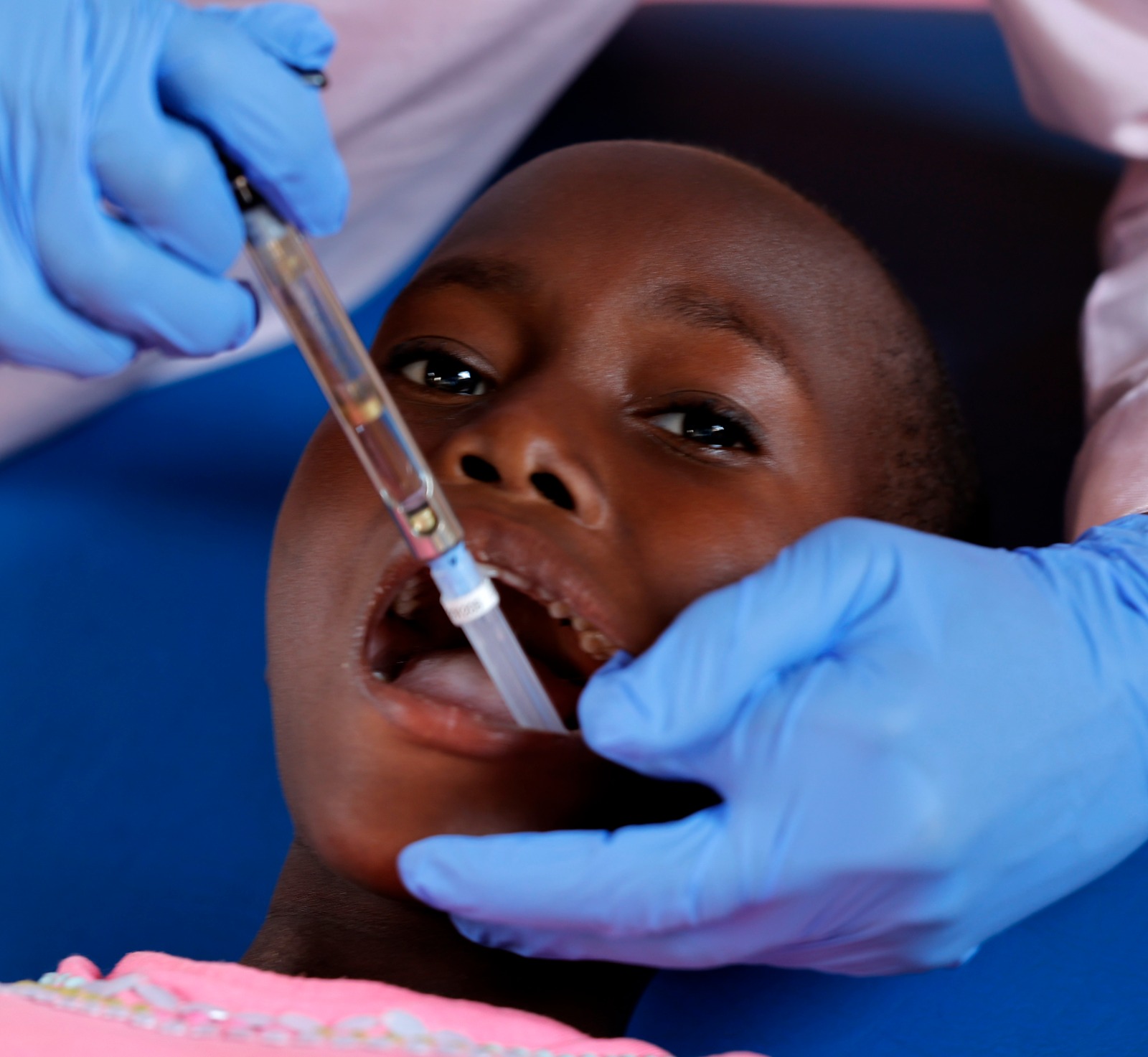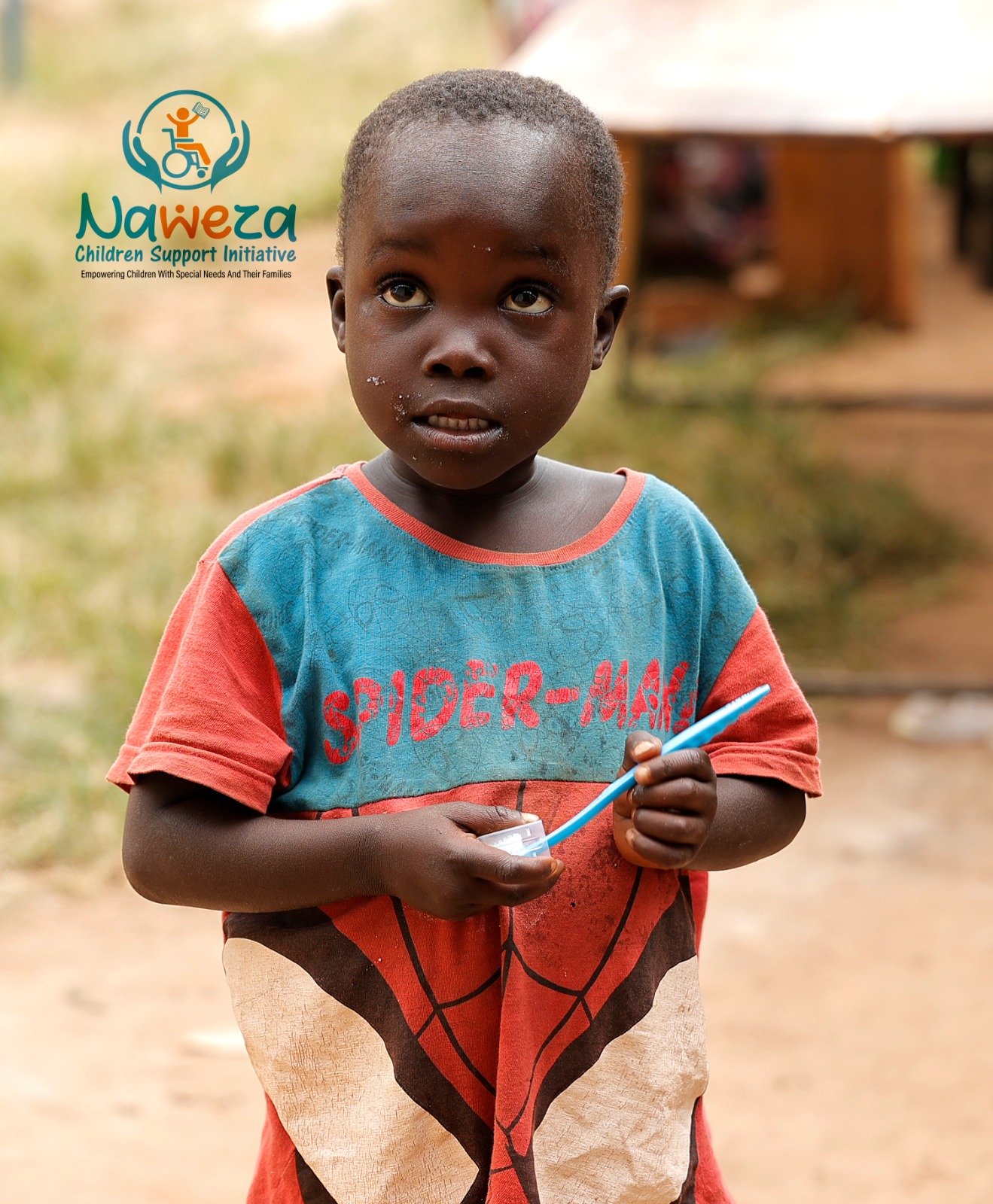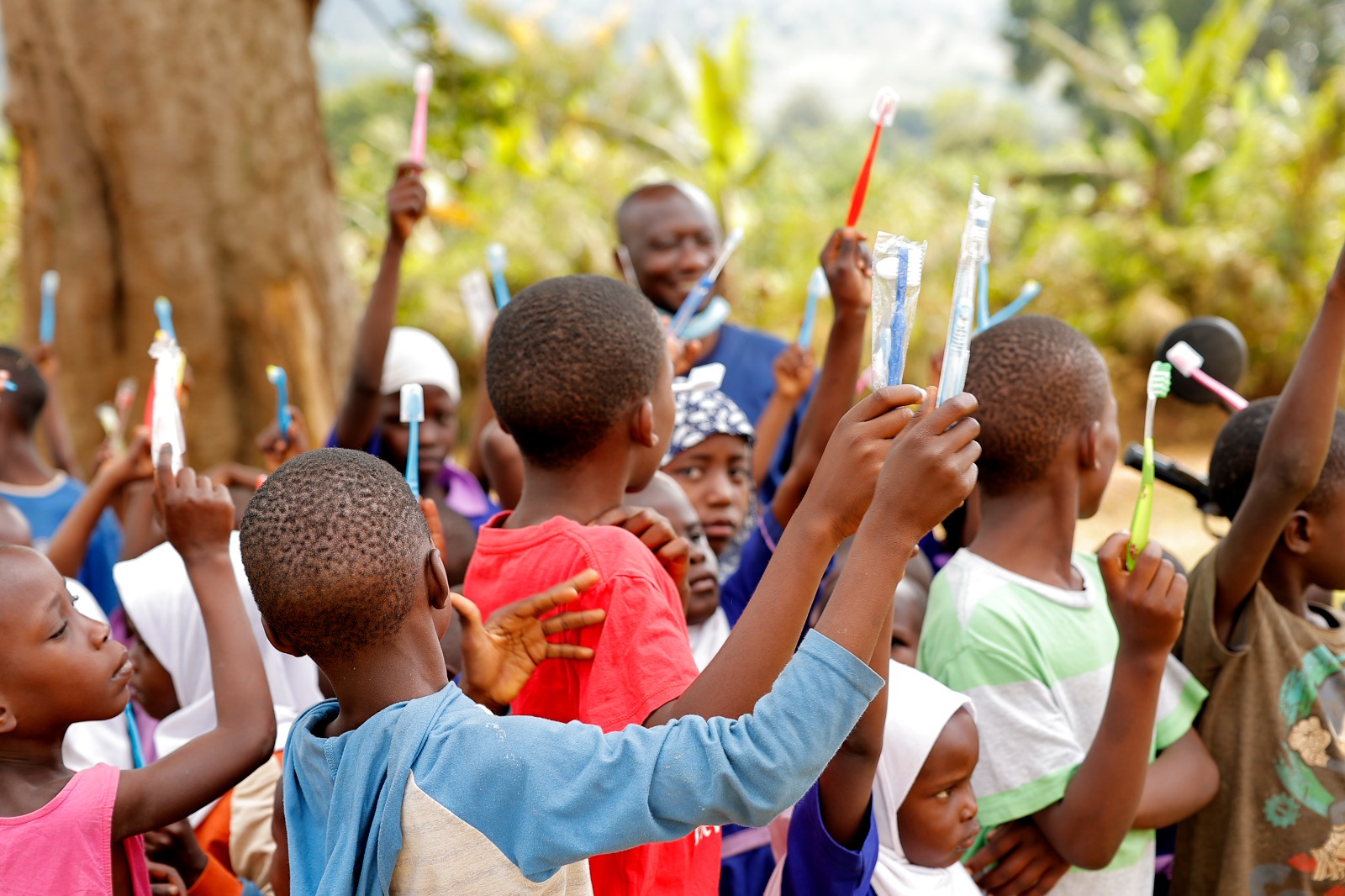
Table of contents
Introduction
Objective of the camp
Dental team and elements of the camp
Beneficiaries of the project
Attendance and Turnout
Duration of the camp
Time plan/Day Routine
Community Appreciation
Impact and Feedback
Dental Health Challenges
Project risks and issues
Conclusion and way forward
Introduction:
On the 19th and 20th
of July 2023, Naweza Children Support Initiative (NCSI) hosted a free Dental Outreach Camp organised by Health Touch Uganda funded by Dr. Bilal Qureshi at Butende UMEA Primary School, in Ngando subcounty and Abu Huraira Education Centre in Kibibi Subcounty both in Butambala District.
This report summarises the objectives of the camp, elements of the programme, the beneficiaries of the camp, camp duration, feedback, risks, conclusion and the way forward. We thank Dr. Bilal Qureyish for his contribution to Health Touch Uganda to enable NCSI to host this
activity and look forward to strengthening our working together in support of children with special needs and their families.
Objective of the camp:
The purpose of the outreach was to provide the dental health services especially pain relief tothe children with special needs and their families, doing tooth extractions, doing fillings for those who needed them in these areas where access to dental care is limited and costly.
Dental team and elements of the camp:
A team of 8 dentists led by Dr. Boaz of Health Touch Uganda offered their services to children and adults at Butende UMEA while at Abu Huraira education Centre there were 7 dentists. All treatments were provided free of charge.
Activities of the camp:
These included:
Dental extractions
Dental fillings
Dental cleaning consultations
Dental health education
Distribution of toothbrushes and toothpaste
Beneficiaries of the project:
The beneficiaries of the project were meant to be children with special needs and their families in the selected areas. However, the very immobile were unable to attend the camp due to inappropriate means of travel. Also, there is no standardised list that has all children with special needs and their families because some are hidden away. Some therefore just turned up when they discovered it was free and the dentists were overwhelmed with numbers. Children from different schools ended up turning for the dental camp. At both centres school children without special needs ended also getting toothbrushes and toothpaste.
Attendance and Turnout:
The Dental Outreach Camp received an overwhelming response from the community. Initially we were expecting 200 people at each site but we were surprised to witness a much larger turnout, exceeding our expectations. The enthusiasm and participation of the community members were heart-warming, indicating the significance of addressing dental health issues in the region. There were over 700 children and adults who benefited from the service. At Butende, 50 children with special needs who filled the forms received the dental services while 350 pupils from Primary 1 to Primary P4 also managed to get treatment. There were 140 adults who registered to get the treatment at Butende Primary School. At Abu Huraira Education Centre, 170 adults, and 70 new children who registered were treated but the children who are usually seen by NCSI were not recorded. So, it is hard to know how many children were treated at this site.
Duration of the camp:
The camp was for 2 days at 2 sites which are among the most deprived areas in the country where people cannot afford basic needs. These areas had never got any dental camp and there are many children with special needs.
Time Plan/Day Routine:
Before the implementation of the dental outreach camp, meetings were carried out between Dr. Boaz and NCSI members. Permission was obtained from the District Health Officer of Butambala District on 13th
July 2023. The dental department of the main hospital in the District (Gombe Hospital) was invited to attend. A flyer was also distributed to the leaders of parental groups. There was mobilisation of the community a week before the camps using the existing parental groups as well as using the community microphones. Leaders at LC 1 level were also informed of the planned activities. On 19th July, patients started reporting at 8.am at Butende UMEA and had to register. There was no prior registration of patients. As it is distant place, treatment started at 10.00 am and the dental team worked until around 5 pm. At Abu Huraira the programme started at 9:00am and ended at 5 p.m.
The following facilities were used at Butende UMEA:
a) The school compound under a tree for dental education.
b) One big classroom for dental treatment.
c) Classroom veranda for dental screening of children from primary 1 to Primary 5
The following facilities were used at Abu Huraira Education Centre. It was a smaller site in terms
of buildings.
a) Hired tent which acted as a venue for dental education and waiting area for treatment
b) One classroom for dental treatment
c) A Masjid was available for those who wanted to use it.
d) One classroom for occupational therapy.
NCSI got an offer from Team Therapist to offer free OT services to the children who needed it.

Community Appreciation:
The community expressed deep gratitude to Health Touch Uganda, Dr. Bilal Qureshi for this initiative. The provision of free dental services brought joy and relief to the residents, who face significant challenges in accessing dental care due to the distance to the nearest health centre and the associated costs. Patients were stunned to see how quickly the exercise was conducted and how less painful it was compared to their previous encounters with the dentists they had seen before in the clinics they had gone to the extent that they could not even talk. We extend our heartfelt thanks to everyone involved in making this outreach camp a reality and look forward to future collaborations to uplift the dental health. Most of the patients’ comments are in video format which have been partly shared already.
Impact and Feedback:
The overall impact of the Dental Outreach Camp was significant. Many community members received much-needed dental check-ups, cleanings, tooth extraction, treatments and free toothbrush were distributed to the community. Oral health education was also provided to raise awareness about dental hygiene practices, which are crucial for preventing dental problems in the future. The positive impact of the camp resonated with the attendees, and they earnestly requested that similar outreach camps be organized in the future. The support provided by Naweza Children Support Initiative, Health Touch Uganda, Dr. Bilal Qureshi, and other partners was recognized as a crucial step in addressing the pressing dental health needs of the community.
Dental Health Challenges:
The Dental Outreach Camp shed light on the dire need for improved dental health services in the area. There was a lot of need in the community that almost everyone the dentists looked at; their mouth had a problem. Most of them had multiple problems and had to live with pain for a very long time. Community members shared that they have to travel more than 30 kilometres to reach the nearest health centre and would cost them about 40,000 to and from for transport minus the dental service minus the cost of treatment. As a result, some individuals had enduring dental issues without proper attention, leading to chronic pain and discomfort. Although the dentists tried to attend to as many patients as they could, they could not attend to everybody. There were too many patients. Most of them had extractions to be done as well as fillings.
Project risks and issues:
This was the first time NCSI implemented this project and were sailing into the unknown. There was lack of clarity to explain to the beneficiaries that such opportunities and some of the people never turned up. Some of the patients had high expectations and some were asking for lunch as well as transport refund, which is not sustainable. From the few videos taken by the cameraman, many were asking for assistance. There was also lack of clarity in recording the


children who came for treatment. Only new children who turned for the dental camp were recorded which affected our data profiling of these children. As an organisation NCSI, its resources were stretched and ended up hiring a tent at Abu Huraira Education Centre.
Conclusion and way forward:
The Dental Outreach Camp was a resounding success, offering essential dental health services to a large number of community members in need. The overwhelming turnout and appreciation from the community underscore the significance of such initiatives in underserved areas. Moving forward, it is vital to continue organizing such free dental camps to support the community's dental health needs and ensure better access to dental care. Naweza Children Support Initiative, Health Touch Uganda, Dr. Bilal Qureshi, and other partners' contributions were pivotal in making this camp a success, and their continued support will be invaluable in
fostering the health and well-being of the community. It will be very good to plan regular dental camps. The nearest health centre where they could access dental services is about 30 km away and it costs 40,000 shillings to travel a person from Butende about 40,000 to and fro for transport minus the dental treatment itself. There is also need for more education because the people were not aware of talking care of their teeth, with
many of them illiterate and they had never been exposed to dental education. There should have been more publicity to attract as manty children as possible because some of them never turned up. There were difficulties in reaching to some immobile children. There should have been more stakeholder engagement to ensure sustainability of the programme. Local school heads would have been contacted separately to identify children with special needs in their schools and allow them attend the dental camp. This would have been an opportunity for schools to identity children with special needs.
Next time, we shall need to put aside some resources to involve the media to raise awareness about the challenges facing these communities. We shall also need the community development officers from the selected district if possible, to have continuity. Next time, the programme will need to start early in the day to avoid long waiting times and also, we shall need to register the patients prior to know how many will be expected to attend. We shall need a multi-disciplinary approach, getting more volunteer therapists to attend to these children.
You can later unsubscribe later if you change your mind.